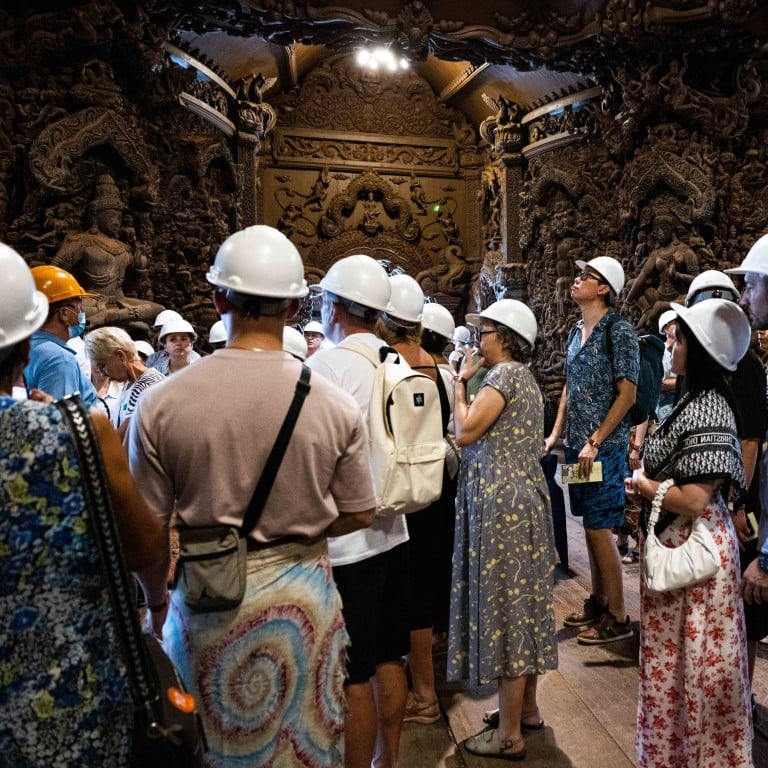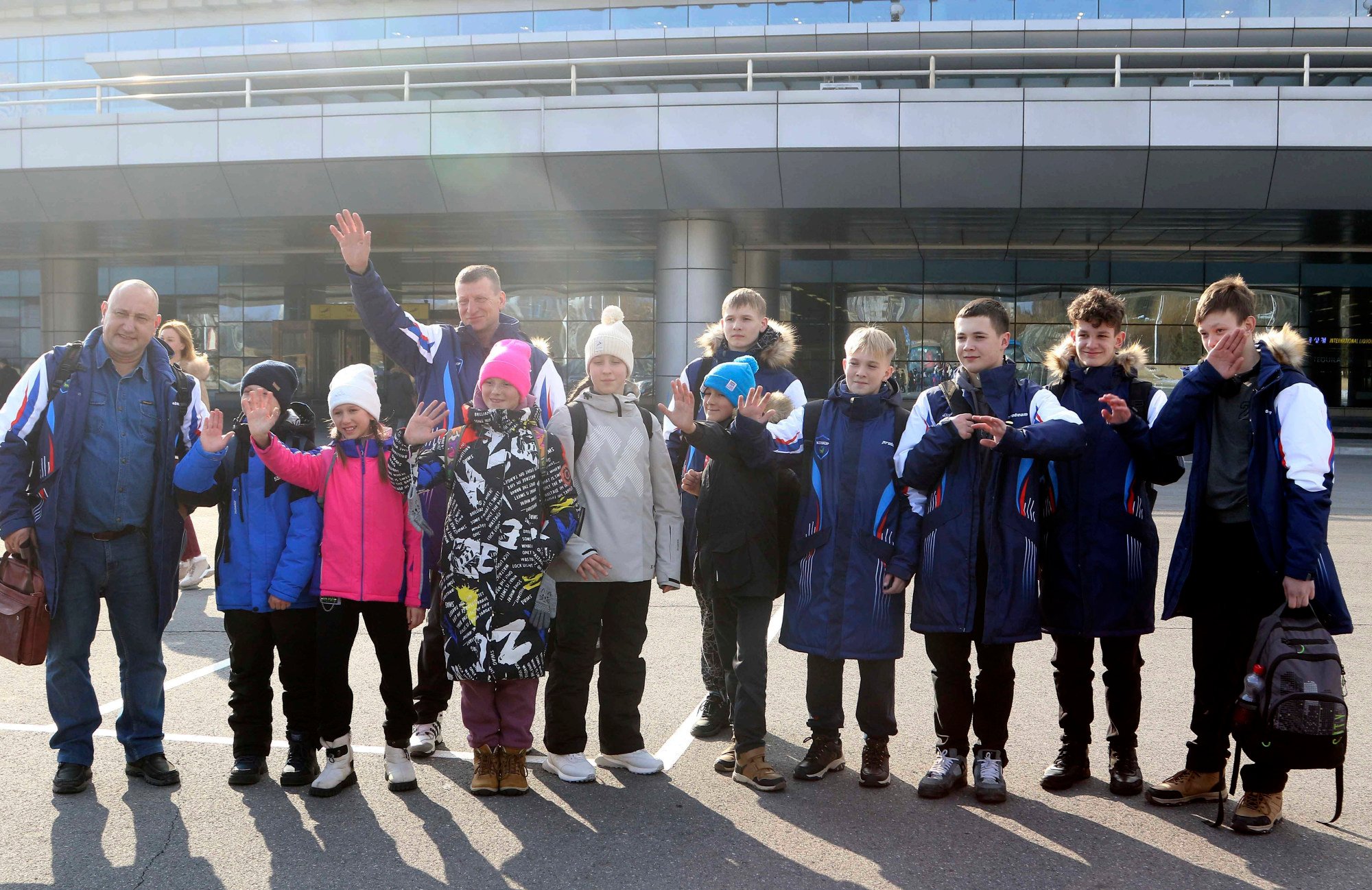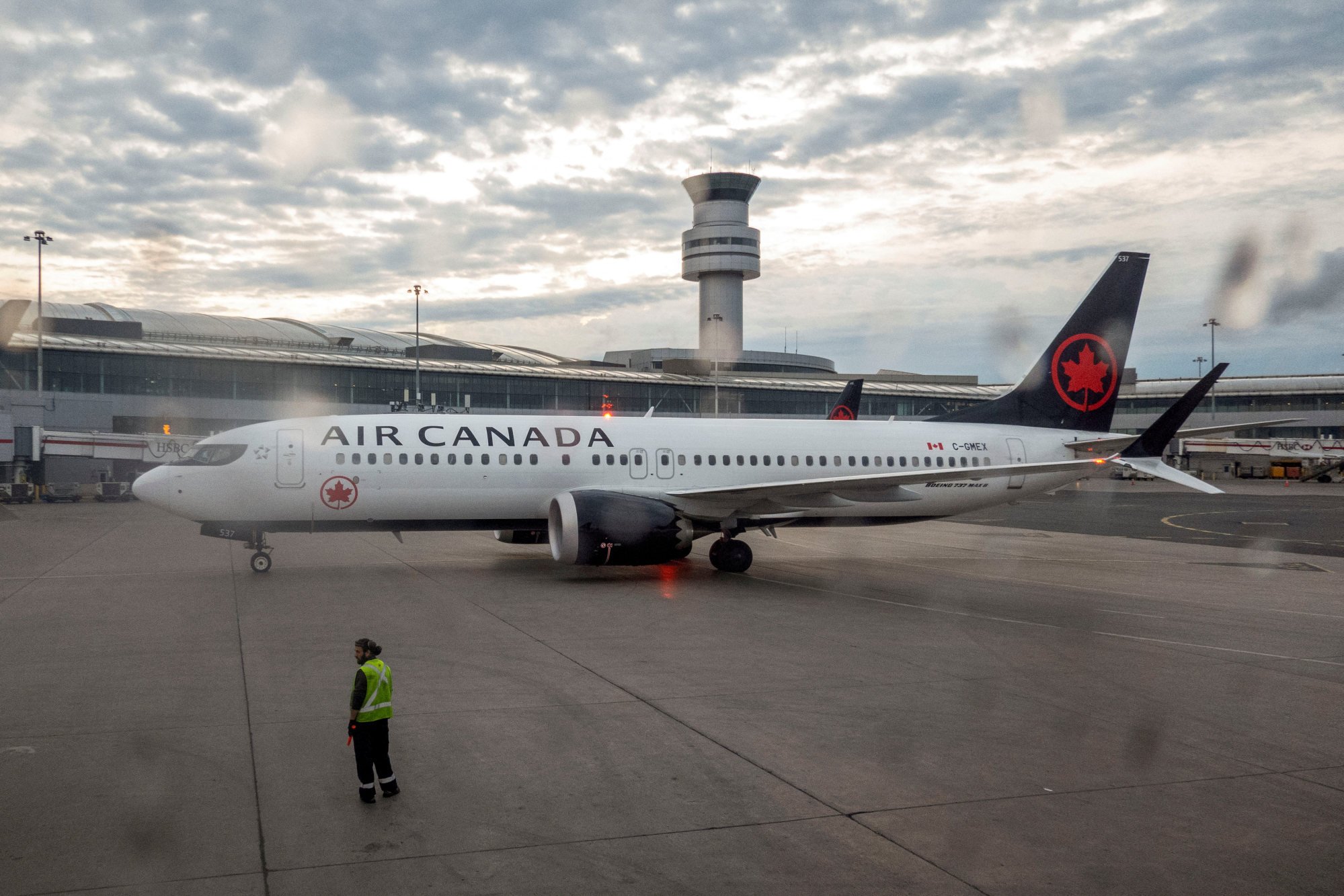
As Thailand woos Russian tourists with longer stays, Phuket locals witness their island turning into ‘something resembling a resort town on the Black Sea’
- Russian tourists are looking increasingly eastward and many are heading to Phuket, where signboards in Cyrillic and new Russian restaurants welcome them
- North Korea is also rolling out the red carpet; Russian tourists became the first foreign group to visit the country since the pandemic
“War, huh, yeah, what is it good for …” asked Edwin Starr in 1970, as fighting raged in Vietnam.
The answer, according to the chart-topping song, is “absolutely nothing” – but that’s not completely true.
War is great for those who don’t have to fight it but do benefit from owning shares in weapons manufacturers. And in the case of the Ukraine-Russia conflict, in particular, it’s good for the tourism industries in countries such as Thailand and North Korea.
Russian airlines are banned from most European airports and tourists from Russia face a host of restrictions across the continent – unless they’re among those wealthy few who have, according to anecdotal evidence, obtained by bribe (€6,000/US$6,490) Ukrainian registration plates and swan around Europe in large SUVs.
From porn stars and party animals to the mafia, Russian trouble in paradise
Most Russian holidaymakers, therefore, are now looking increasingly eastward instead of west.
“In January, Russian tourists led the inbound market with 130,709 arrivals, while 84,966 Chinese visited [Thailand],” reports the Bangkok Post.
But the Tourism Authority of Thailand wants more, having set a target of receiving 2 million Russian visitors (out of an overall total of 35 million to 40 million) in 2024. And at least half of them will make a beeline for Thailand’s hottest of hot spots, which has already been Sochi-fied to an extent.
‘I’m obsessed with the city’: Russia-born restaurateur’s Hong Kong mission
“On the southern island of Phuket, some areas have turned into something resembling a resort town on the Black Sea with Russian men and women lounging on the beach,” reports Radio Free Asia.
“There are signboards in Cyrillic, Russian mothers pushing strollers around and new Russian restaurants that offer a taste of home. Russian real estate agents, tour companies and even Russian tour guides cater to the visitors,” which, of course, doesn’t best please local businessfolk.
Nor does the rising cost of airfares between Bangkok and Phuket.
Where is Asia’s longest escalator and will Malaysia challenge the title?
Not that Russians must pass through the Thai capital; in October, direct flights between Russia and Phuket resumed. And in the same month, Thailand began automatically granting Russians stays of up to three months in the kingdom – an increase from 30 days.
All out to woo, another measure Bangkok has introduced to appeal to tourists – of all stripes – is the offer of medical coverage in the event of an accident. Under the new scheme, which will run until August 31, the tourism minister announced last week that the government will cover expenses up to 500,000 baht (HK$108,515) and pay compensation of up to 1 million baht in case of death.
North Korea is another country rolling out the red carpet for Russians.
Koh Samui Four Seasons to make killing as HBO’s White Lotus eyes Thai island
“A group of Russian tourists have arrived in the North Korean capital, Pyongyang, becoming the first foreign group to visit the country since the Covid-19 pandemic,” reported Al Jazeera on February 9.
“The tour group included people in the tourism business and ‘travellers from literally all parts of Russia from Kaliningrad to Vladivostok’, the [Russian] embassy said. They will spend four days taking in the sights and visiting a major ski resort.
“‘We will look forward to new encounters with tourists from Russia!’ the embassy added.”

It seems unlikely many Russians will move permanently to Pyongyang, but Phuket is a whole other kettle of fish. And with Laguna Lakelands, a US$2 billion “lifestyle community” and the largest private real estate development on the island, just about to be launched, there are plenty of investment opportunities to be had in Phuket.
To understand what that could mean for those already living in Phuket, perhaps we can look at what’s happened in Antalya, Turkey. So many Russians moved in after Moscow’s February 2022 invasion of Ukraine that local families were being priced out, according to a New York Times report that December.
“It is as if one morning we woke up and we no longer heard any Turkish words. It’s all Russian,” said a 23-year-old ice cream vendor interviewed by the newspaper. “Turks feel like strangers in their own country.”
War, huh …
Air Canada claims its chatbot ‘is responsible for its own actions’ after mistake

In a judgment likely to please neo-luddites worried about the AI takeover of the world, a tribunal in Canada has found that not only can chatbots make mistakes, but their “parents” should still be held responsible.
The problem arose when a chatbot on Air Canada’s website informed a customer the airline allowed bereavement refunds to be claimed 90 days after the purchase of tickets. But that was incorrect, and when the customer tried to claim his refund he was refused.
The passenger pursued the refund, and the airline responded by doing something extraordinary.
They were tortured, abused. But now these elephants are loved and pampered
“In an argument that appeared to flabbergast a small claims adjudicator in British Columbia, the airline attempted to distance itself from its own chatbot’s bad advice by claiming the online tool was ‘a separate legal entity that is responsible for its own actions’,” reports CBC.
Being a human, the adjudicator found that argument preposterous and ordered the airline to reimburse the passenger, who had had the foresight to take screenshots of his conversation with the chatbot.
Without those screenshots, we’ve no doubt that sneaky bot would have denied everything!

